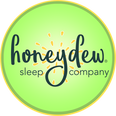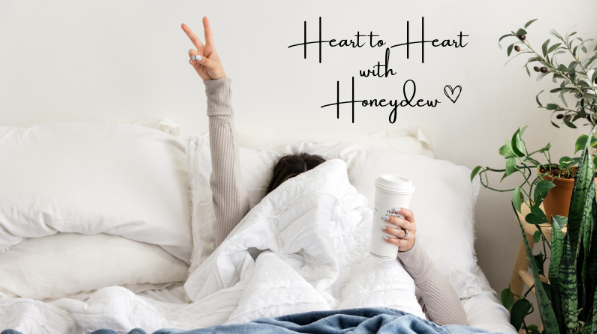Welcome to Heart to Heart with Honeydew! Today we discuss NAPS! How they originated, why you should take one, and my favorite napping companion :)
Have you ever thought about who invented napping? Just me? Well, I found out that the concept of napping cannot be attributed to a single inventor. Throughout history, various cultures have recognized and embraced the benefits of short periods of rest during the day. The term "siesta," for example, originates from Spain and refers to a traditional afternoon rest. This practice is also common in many Mediterranean and Latin American cultures. No matter where it originated, I'm sure glad it did!
But our electronic screens emit blue light, which prevents melatonin production from occurring. You guessed it - this disrupts our sleep!
So tonight, try turning off your screens 1 hour before bedtime.
The Classic Scrumptious Pillow has the same unique fill and fabric as our Scrumptious Side Pillow but in the familiar rectangular shape of a traditional pillow.
A Classic Reimagined
The Classic Scrumptious Pillow is your favorite pillow, but better.
We have taken the familiar rectangular shape and made a pillow that achieves the impossible: The Classic Scrumptious Pillow manages to feel both incredibly supportive and luxuriously soft at the same time.
Did You Know...? Here's the Question: Do those who are blind experience images in their dreams? (Scroll down for the answer)
Embracing the art of napping can offer a myriad of benefits that go beyond just countering afternoon fatigue. Here's a quick list of reasons why you should make napping a priority:
1. Naps have been shown to enhance cognitive function, sharpening the mind for tasks that require focus.
2. A brief nap can significantly uplift mood, acting as a natural mood stabilizer in the midst of a hectic day.
3. Short naps can bolster memory retention, making them a secret weapon for learners and professionals alike. However, to ensure these benefits don't come at the cost of nighttime sleep or result in post-nap grogginess, it's crucial to limit naps to 20-30 minutes and avoid snoozing too close to bedtime.
When done right, napping becomes a revitalizing practice that can optimize both mental and emotional well-being.
Before diving into the world of sleep science with our company, I was quite the nap skeptic.
The idea of pausing in the middle of the day, even for a brief moment of rest, seemed unnecessary.
"I've got a full night's sleep, why would I need a nap?" I'd often think to myself.
My days were packed, and the thought of "losing" even 20 minutes felt counterproductive.
However, as we delved deeper into the intricacies of sleep and its impact on well-being and productivity, I became intrigued by the potential benefits of napping.
With a mix of curiosity and a dash of skepticism, I decided to experiment with short afternoon naps. The transformation was nothing short of remarkable.
Those brief moments of rest became an oasis of rejuvenation in the midst of bustling workdays. I found myself waking up with a clearer mind, a more positive mood, and a surge of energy that carried me through the rest of the day.
And my favorite nap companion? My Honeydew Body Pillow hands down. It is definitely the ultimate sleep companion!
It's funny to think that starting a sleep company not only changed how I viewed sleep but also reshaped my daily routine in such a profound way.
I rarely go a day without a nap, and I wouldn't change that for the world!
Did You Know...? Answer: People who become blind after birth can see images in their dreams, while people who are born blind dream as well, but their dreams are more likely to involve the other senses.









